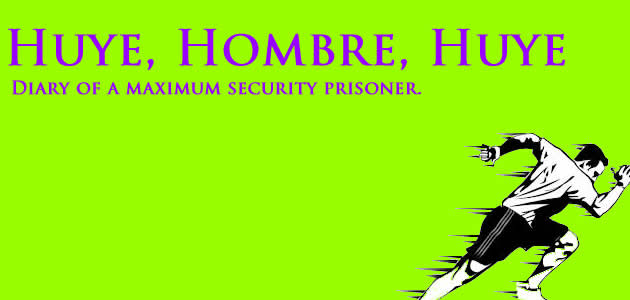2014 LBC Review
Our year 2014 in review
This is the second time we have experimented with doing an end of year summary of what we have accomplished this year.
Little Black Cart is a public conspiracy. If we succeed everything we experience in daily life will be transformed: work, play, ownership, and all of the old hierarchies and relationships. We publish missives in the form of anarchist books, newspapers, and journals that celebrate and strategize the Beautiful Idea with all its complications and heartaches. We welcome new wrinkles on old ideas and hearing word of new experiments related to the general project of unleashing anarchy upon the world.
One of the places where we develop our thinking in this regard is in our annual (this is our second) review of the past years publishing endeveors. Here is the introduction to the 2014 LBC Review.
You can get a copy at Little Black Cart
Introduction
2015 is the second time we have experimented with summarizing our accomplishments for the year. This is our alternative to marketing since the old system (press releases and codependent book sellers and distributors), isn’t how LBC sells books. Instead we communicate directly with our audiences. We go to you (largely by way of local bookfairs) and in general stay accessible and communicative about these things we love… the ideas that we share by way of books, papers, zines, and even the Internet.
There is a line from the SI Anthology (which was the book that turned me to SI-inflected anarchism) that I’ll share here—
Nor have I tried to explain supposed difficulties in the SI’s language. After the usual diet of ideological pabulum it may be a momentary shock to be forced to think; but those who are really confronting their lives and therefore this society will soon understand how to use these texts. Those who aren’t, won’t, regardless of explanations. Situationist language is difficult only to the extent that our situation is. “The path to simplicity is the most complex of all.
…Which is a circuitous way of saying something quite simple. LBC is about the anarchism we are living today, now, in 2015, and most definitely not the anarchism of the 1936 CNT, the Black Army of 1918, or even of the liberal (in the good sense of the word) idealism of Paul Goodman, Murray Bookchin, or the Yippies! We both care enough about history to make these referential points and disdain the grip it has on the imagination of some of our friends.
Today’s anarchism is about aspiration, anger, futility, and new perspectives on old problems. Yes, we of course aspire to a world that we imagine could be, a vision that includes doing away with the old anti’s (the State, Capitalist exchange relationships, and other icky stuff), but also would mean a dynamism that is beyond localism or globalization, a heart beyond cloying pleas for the mis-remembered past or relying on the goodwill of man, a soul beyond anything religion could organize, and a mind bright enough to understand the absurdity of all this, and clear enough to laugh about it.
As part of that, we are angry, at a world that constrains us (and calls it safety and freedom), at racism (which destroys our—possibility for—friendships and a capacity to be together), at systems of social organization that limit, bind, and frame the ways we love, live, and think, and at the people who enforce those systems. Our anger and the scale of what we are up against makes our clearest goals impossible. This can feel crippling, and many of our friends resist this impossibility by declaring that the breaking of windows is Struggle, but in fact the impossibility is a kind of freedom. Nineteenth century dreams of revolution are a trap. Without them we can do our work on a stage that fits us. Lovers of freedom, of anarchy, are not suited for a global stage. We are not Bono, the World Cup, or attacks by drone against strangers on the other side of the world. To be simple about it, we are the opposite of those horrorshows. We know that the only freedom we can ever have is not an abstraction but what we can seize, with our hands. It is the little moments. It is in the stories we tell with our mouths, read with our eyes, and listen to with our ears. Real freedom is the size of human beings.
Today’s anarchism revisits old arguments about agency, strategy, history (and who gets to tell it), and priorities, as anarchists and as agitators against the existing order. These fights are confusing nowadays because of the changing way that communication occurs vis a vis the Internet. Conversations happen much faster, and with much more attitude, than ever imagined in a time when radical debate felt formal and respectful. They are also less important, ignored by a huge portion of the concerned audience, and more pointed than a trend of “common sense” strategic operation among many anarchists (who confuse their grassroots organizing work with the imperative work of anarchists as a whole). These contradictory currents exist at the same time; there is both a sophisticated and self-critical reappraisal of anarchist canon at the same time that activists have rebranded traditional social justice work as anarchistic. Our central project is negotiating with this contradiction while also complicating it: with esoteric strains of thought that refract upon thorniness with a lighter hue. This is (obviously) complicated but a tension that comes to mind is how fiercely and quickly anarchist projects get isolated into their perceived position (as if most of us, or the work we do, suffers from such stasis: we are, usually, more interesting than our positions). 2014 has been dominated by the question of how to negotiate this well, and we have had mixed results. On the one hand we have a mix of what I like to call “strugglismo” titles, some of the modern anarchist canon, alongside some unorthodox titles. On the other hand it is hard to see the impact that this intellectually vigorous mixture—this curry, if you will—has had on our milieu. Instead the feedback we tend to get is that if a specific reader reads a title of ours that they don’t agree with, then we have betrayed them politically.. We’ve had several people leave the project because their interest wasn’t in the curry but only in the cardamom, cumin, or garlic. Similarly there is a great deal of self-described anarchist space that has a taste only for hamburgers and fries, with no interest in 21st century anarchist curry at all! Over this entire mix of conversations, and largely unacknowledged, is the fact that for many, books are no longer the way to have conversations or engage with ideas. Recognizing this either means more and different format for content producers (ie videos; high end, highly designed web content, an emphasis on shorter, more attenuated printed material, etc.) or a constrained production model. We have chosen the second option here (but we leave room to change our minds at a later time…).
The Point of Imprints
LBC publishes under different imprints to support and help create a vibrant anarchist space by increasing the spaces between the stated anarchist positions. To put this another way, we have a jaundiced eye that we do not trust to make the best case for the inspiration of the Beautiful Idea. We are not the best advocates for it, as we are suspicious of advocates ourselves. Instead we hope that between different perspectives—for example between Ardent, the IEF, and Cruel Hospice—lies a more interesting, unlabeled, perspective than what any single imprint can provide on its own.
Our imprints are also about collaboration. Traditional anarchist publishing groups have to consense on every word, idea, and provocation that they publish. They also gravitate, mostly for reasons of capitalist or partisan logic, towards centralized editorial control. (After all, they are the best advocates of their message.) Our idea is a little different. Rather than burden all of our content with our process, we want to find provocateurs who are interestingly disagreeable. As a result, each imprint has a different editorial burden.
Finally, publishing under these different names and working with all of these different editors has improved our anarchist capacity to learn, change, and understand other people. Our jaundice (which is not hard to read as intolerance or judgment), has mellowed. Realizing the passion projects of other people is almost as fun as working on our own!









